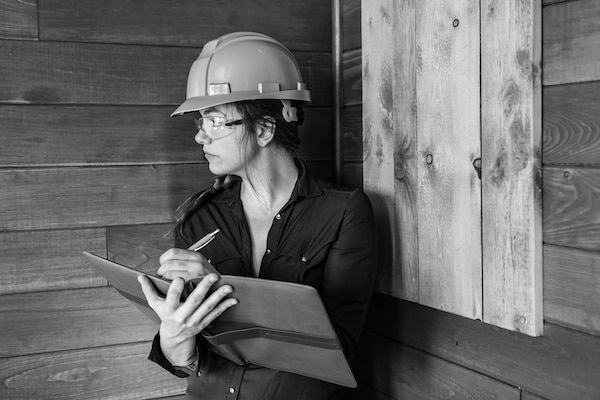Asbestos Consulting & Testing
Performing Asbestos J# Demolition Permit & NESHAPs Renovation/Demolition Surveys Request A QuoteYour choice for reliable asbestos testing.
Whether you’re a property owner, manager or contractor looking for high quality asbestos testing services in the greater San Francisco Bay Area and throughout California, you can rely on Adviro to get the job done right.
As a leading environmental consulting and testing company headquartered in San Jose/Silicon Valley, our team of experts are certified with the State of California’s Division of Occupational Safety and Health Administration (OSHA).
We offer step-by-step guidance.
Our certified professionals will help guide you through the process — whether you’re planning a renovation/demolition project, protecting liability, or concerned about asbestos hazards affecting the health of occupants.
Our team will work closely with you to ensure that the entire process will meet your project needs. Our certified consultants and technicians use quality equipment and regulated processes to deliver accuracy and efficiency.
Doing a renovation/demolition project?
If you need to obtain a J# Demolition Permit with Bay Area Air Quality Management District (BAAQMD) for renovation/demolition, we deliver complete surveys with quick turnarounds, so you can get your permit and project moving forward.
Have a commercial or industrial project?
Adviro provides customized, complete surveys to fit the renovation/demolition compliance required by National Emissions Standards for Hazardous Air Pollutants (NESHAP) with the Environmental Protection Agency (EPA). Please contact us regarding your project’s scope of work, and we’ll put together a customized proposal covering all your requirements.
Concerned about asbestos exposure?
Our asbestos testing can screen your property for asbestos fiber exposure. Asbestos exposure concern is for non-visible fibers floating in the air which can be inhaled into the lungs, potentially causing disease and health issues. Our testing can identify the presence of these fibers. This information can be used for a post-asbestos abatement clearance, property screenings due to questionable renovation/demolition work, or simply for peace of mind.
Asbestos Testing and Reporting Process
When you contact us, we’ll discuss your needs and explain how we can help. Additionally, we’ll include an itemized proposal of our service.
Once you choose to work with Adviro by signing the proposal, we’ll immediately contact you to schedule your appointment.
Our certified asbestos consultant/technician will visit your property for environmental sampling, material identification and documenting the process. They will check areas throughout your property from top to bottom. Samples will be prepared for independent laboratory analysis.
Once all results are gathered, we’ll deliver clear, concise and detailed reports with pictures, diagrams, certifications and documentation compliant for regulatory agencies. The detailed information provided in our reports delivers and shows due diligence for compliance as well as any possible future litigation.
Please review your report.
Our consultants/technicians are available or will contact you for further review of any specific details related to your project. At this point, with the specific details, we can consult regarding potential strategies for your next course of action.
Asbestos Services:
- BAAQMD for J# Permit
– Demolition Survey
– Renovation Limited Survey - NESHAPs | OSHA
– Demolition Survey - Single Sampling
– Popcorn Ceiling
– Ducting Wrap
– Vinyl Flooring
– Drywall/Gypsum Board - Real Estate/Property
– Screening (for Health) - Clearance Post Abatement
- Project Oversight
- Personal Air Monitoring
Why Go Adviro?
- Certified Environmental Experts
- Responsive Scheduling
- Quick Turn-Around Reporting
- Concise, Detailed Reports
- Transparent Package Pricing
- Courteous Professional Staff
FOLLOW US

ASBESTOS FAQS
What is asbestos?
Asbestos is a group of naturally occurring silicate minerals. Mined and milled from native rock, asbestos is fibrous, thin, and strong. Chrysotile, amosite, crocidolite, tremolite, anthophyllite, and actinolite fibers are the most common types of asbestos minerals. However, only chrysotile, crocidolite, and amosite varieties are of industrial importance. Characteristics, like heat resistance, chemical inertness, and insulating capacity, coupled with the flexibility to be woven make asbestos suitable for use in many industrial applications.
How do I know if I have asbestos in my home (in floor tile, ceiling tile, shingles, siding, etc.)?
The only way to be sure whether a material contains asbestos is to have it tested by a qualified laboratory. EPA only recommends testing suspect materials if they are damaged (fraying, crumbling) or if you are planning a renovation that would disturb the suspect material. Samples should be taken by a properly trained and accredited asbestos professional (inspector).
I am going to perform a renovation or demolition to my building. Is there anything I should know about asbestos before I begin my project?
The Environmental Protection Agency (EPA) National Emission Standards for Hazardous Air Pollutants (NESHAP) requires that you perform a survey to determine the presence of asbestos in your building before doing a renovation or demolition.
I’ve found asbestos during demolition or remodeling, who do I call for a permit?
Newly discovered asbestos containing material should be left in place until the local Air Quality Management District is notified and, if necessary, an abatement permit issued. Depending on the type, amount and composition of the material, an abatement contractor may have to be hired to remove it.
What are the health risks if I have asbestos in my home, building, apartment, or school?
Asbestos that is in good condition and left undisturbed is unlikely to present a health risk. The risks from asbestos occur when it is damaged or disturbed where asbestos fibers become airborne and can be inhaled. Managing asbestos in place and maintaining it in good repair is often the best approach.
Where can I find someone to test a material to see if it contains asbestos?
You can perform an internet search for “asbestos inspection and assessment” and the location of your home. Also, make sure that the inspector is properly trained and accredited by your state.
I'm remodeling my home. Do I need to be concerned about asbestos in the building materials?
It’s not possible for you to tell whether a material in your home contains asbestos simply by looking at it. If you suspect a material within your home might contain asbestos (for example floor tile, ceiling tile or old pipe wrap) and the material is damaged (fraying or falling apart) or if you are planning on performing a renovation that would disturb the material, the EPA recommends that you have it sampled by a properly trained and accredited asbestos professional (inspector). The professional then should use a qualified laboratory to perform the asbestos analysis.
Does dry wall or sheet rock contain asbestos?
There is no way to know whether these materials contain asbestos without having them tested. If you are concerned those materials in your home may contain asbestos and the materials are damaged (frayed, falling apart) or if you are performing a renovation that will disturb the material, consult with a state accredited asbestos inspector.
How might I be exposed to asbestos fibers?
Asbestos can enter the environment from weathered natural mineral deposits and fiber releases arising from man-made asbestos products. Asbestos may be found in products like floor tiles, roof shingles, cement, and automotive brakes. Electrical, plumbing, acoustical, and structural insulation applications are also very common. Asbestos fibers are released into the air when these products are disturbed.
What does "Friable asbestos material" mean?
Friable asbestos material means any material containing more than 1% asbestos, that when dry, can be crumbled, pulverized, or reduced to powder by hand pressure. Asbestos containing materials that are not classified as friable may be made friable by fires, demolition and other renovation activities.
How to Identify Materials that May Contain Asbestos
Generally, you can’t tell whether a material contains asbestos simply by looking at it, unless it is labeled. If in doubt, treat the material as if it contains asbestos and leave it alone. You should have your home inspected for asbestos-containing materials by a trained and accredited asbestos professional if: You are planning to remodel your home (remodeling can disturb building materials). Your home has damaged building materials (like crumbling drywall and insulation that is falling apart).
Adviro consults for and tests all types of properties:
—

Commercial
High-rise office complexes, corporate campuses, industrial properties, retail centers, grocery stores, restaurants and more trust their environmental projects with us.

Public Works
Adviro works with school districts from elementary to university level, as well as state parks and federal buildings to help ensure the safety of their occupants.

Residential
For single family homes, duplexes, condos, apartment complexes and HOAs, Adviro helps property owners, managers and renters maintain their peace of mind.
